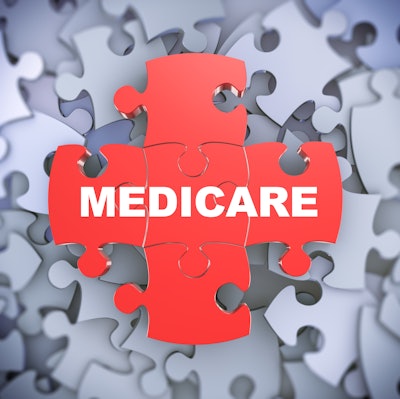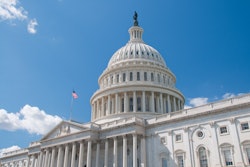
The U.S. Centers for Medicare and Medicaid Services (CMS) has added several new oral health billing codes for Medicare, and one U.S. legislator wants states notified so they consider making similar changes for Medicaid.
Since states often model their coverage and billing practices for Medicaid after those of Medicare’s, U.S. Sen. Dick Durbin (D-IL) requested that CMS notify every state of the changes, including new oral health billing codes for dental surgical procedures in ambulatory surgical centers that were added to the 2024 Medicare Hospital Outpatient Prospective Payment System and Ambulatory Surgical Center (ASC) Payment System final rule, according to a press release dated November 28 from the legislator’s office.
“These changes will increase reimbursements and enable more providers to furnish these essential dental services, making it easier for beneficiaries who need surgical intervention to receive much-needed care and treatment,” Durbin said in his letter to CMS.
For calendar year 2024, the CMS finalized Medicare payment rates for more than 240 dental codes for ambulatory payment classifications, aligning them with payments in the Calendar Year 2023 Physician Fee Schedule final rule. Adding the codes aims to “result in greater consistency in Medicare payment for different sites of service and help ensure patient access to dental services performed in the hospital outpatient setting when payment and coverage requirements are met,” according to a CMS fact sheet.
For 2024, CMS has reassigned HCPCS (Healthcare Common Procedure Coding System) code G0330, which is used to describe facility services for dental rehabilitation procedures performed on a patient who requires monitored anesthesia and use of an operating room, from the Dental Procedures APC (APC 5871) to Level 4 ENT Procedures (APC 5164).
Furthermore, the CMS is finalizing the addition of 26 payable dental surgical procedures to the ASC Covered Procedures List and 78 ancillary dental services to the list of covered ancillary services to address access issues for dental care under anesthesia in ambulatory service centers for 2024, according to the agency.
Additionally, Durbin praised the CMS for continuing to move toward making dental services more accessible to patients and improving payments for providers. In 2023, the CMS finalized a rule that included a new code for dental surgical procedures in outpatient hospitals that elevated reimbursement rates for these services from $200 to about $2,000, according to the release.
Nevertheless, Durbin requested that the CMS encourage states to replicate Medicaid coverage and billing practices to mirror Medicare’s changes.
“CMS’ recent changes to expand access under Medicare hold the potential to benefit those who receive coverage under Medicaid as well,” Durbin said.
Durbin’s call follows a recent request he made to DentaQuest, Envolve, and Avesis, all dental benefit administrators for Medicaid managed care companies, seeking responses to challenges that Medicaid recipients in Illinois face accessing oral healthcare.
Expanding access to oral health care has been a push for the Biden administration. On November 24, the U.S. Department of Health and Human Services published a proposal in the Federal Register that would no longer ban states from making dental coverage available to adults who buy health insurance from Affordable Care Act marketplaces. If the proposal, which calls for ACA plans to cover dental care for adults without annual or lifetime limits, is finalized, states would have the option of adding the benefit in 2025.




















